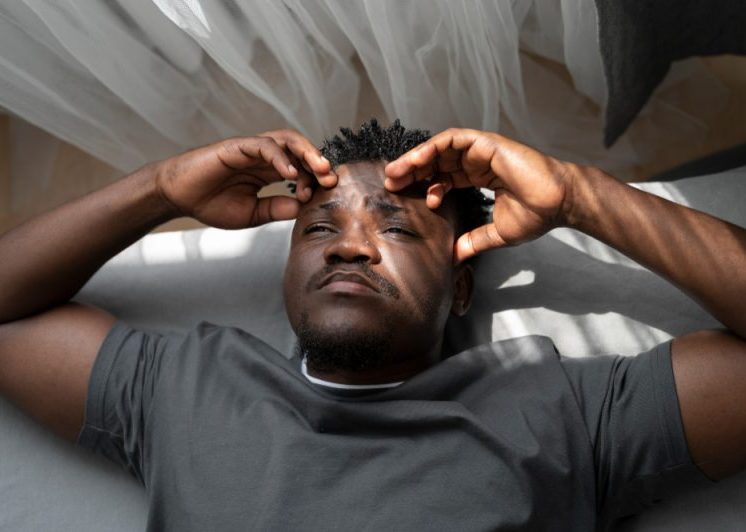Teamwork Makes the Dream Work: Practical ADHD Management for Couples

“Honey, where are the keys?” Sarah asked, her voice tight with frustration. Mark, eyes wide, patted his pockets, then the kitchen counter, then the couch cushions. “I swear I had them a minute ago,” he mumbled, a familiar wave of panic washing over him. This wasn’t the first time. They were already late for their friend’s dinner, a dinner Sarah had reminded him about three times that day.
Meanwhile, a pile of unopened mail sat on the dining table, a testament to Mark’s good intentions and poor follow-through. Sarah had asked him to sort it weeks ago. Later that evening, during a heated discussion about the forgotten dinner reservations (again, Mark had meant to call, he really did), Sarah felt a surge of resentment. “It’s like you don’t even care,” she said, tears welling up. Mark, feeling overwhelmed and misunderstood, retreated into silence, his mind racing with a million thoughts, none of them helpful.
Does this sound familiar? Many couples grapple with these kinds of scenarios, often without realizing that ADHD might be playing a significant role.
Attention-Deficit/Hyperactivity Disorder (ADHD) is a neurodevelopmental disorder that affects brain function, impacting attention, hyperactivity, and impulsivity. It’s not just about being “scatterbrained” or “lazy.” It’s a real neurological condition that can make it difficult to focus, manage time, control impulses, and regulate emotions. For Mark, the lost keys, the unopened mail, and the forgotten reservations weren’t signs of disrespect, but symptoms of his ADHD. For Sarah, the constant reminders and the feeling of being let down were equally real and valid.
Now that we have a bit more context, let’s explore practical strategies to turn those challenges into opportunities for stronger connection and understanding.
Understanding Each Other’s Needs
The foundation of any successful team is understanding. Start by having open, honest conversations. Learn about ADHD together. Resources like the CHADD website or books by experts can be invaluable. Create a “relationship inventory”—what are your strengths as a couple? Where do you struggle? Remember, empathy is key. Your partner isn’t ignoring you; their brain processes information differently. Understanding this shift can transform frustration into compassion.
Creating Structure and Routines
Chaos can be a common theme when ADHD is involved. But teamwork can bring order. Establish routines for mornings, evenings, and weekends. Use shared digital calendars, reminder apps, or even a whiteboard in a central location. Make sure these routines are flexible. Life happens, and adaptability is crucial. For example, a shared grocery list app can prevent double purchases and forgotten items.
Effective Communication Strategies
Communication breakdowns are common, but they’re not inevitable. Practice active listening—repeat back what you hear to ensure understanding. Use clear, concise language. Instead of saying, “You never listen,” try “I feel unheard when…” Schedule dedicated time for conversations, free from distractions. And remember, immediate feedback, whether positive or negative, prevents forgotten details. If something needs clarification, ask! Don’t let assumptions lead to misunderstandings.
Dividing Responsibilities
Divide tasks based on strengths and preferences. If one partner excels at organization, let them handle the bills. If the other is a great cook, take charge of meal planning. Use visual aids like chore charts or shared calendars to keep track. And when one partner feels overwhelmed, step in and offer support. Remember, it’s about working together, not keeping score.
Building in Breaks and Relaxation
Self-care is essential for both partners. Schedule regular breaks and relaxation time. Find activities you enjoy together, whether it’s a walk in the park or a movie night. Learn to recognize signs of overstimulation and create a calm environment. A quiet space, noise-canceling headphones, or a weighted blanket can make a world of difference.
Seeking Professional Support
Don’t hesitate to seek professional help. Couples therapy or individual therapy can provide valuable tools and strategies. Resources like the ADHD Coaches Organization (ACO) or CHADD can connect you with experts. Seeking help is a sign of strength, not weakness.
Celebrating Successes
Acknowledge and celebrate your progress, no matter how small. Positive reinforcement goes a long way. Understand that progress isn’t always linear. There will be setbacks, but that’s okay. Focus on the positive and keep moving forward. Did you successfully get to an appointment on time? Celebrate it! Did you and your partner work through a conflict? Congratulate yourselves!
Conclusively, teamwork is the key to navigating ADHD in a relationship. With understanding, patience, and collaboration, you can build a strong and fulfilling partnership. Remember, you’re not alone. Many couples face these challenges, and with the right tools, you can thrive together.
What strategies have you found helpful in your relationship? Share your thoughts in the comments below!